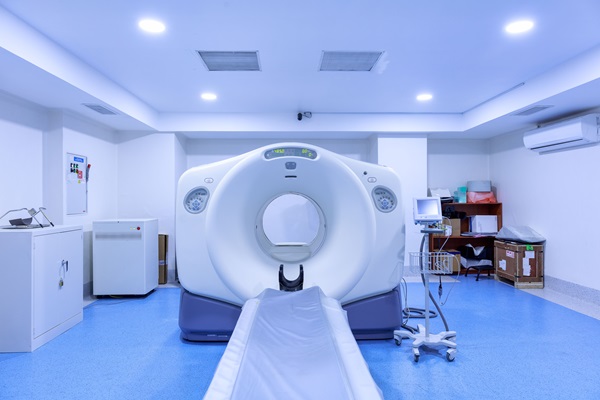Why Laboratory Services Are Crucial for Accurate Medical Diagnoses

In healthcare, laboratory services include collecting, analyzing, and testing patient samples to help diagnose, treat, and prevent disease. Symptoms, lifestyle, and health history provide incomplete information when making a medical diagnosis. Therefore, providers rely on laboratory services for the most complete and accurate information when making and confirming a diagnosis and planning and monitoring treatment.
What are laboratory services?
Laboratory medicine involves collecting and analyzing bodily fluids and tissues in a lab using chemistry, microscopic examination, and other types of screening to provide more detailed information for medical diagnosis. The different categories of laboratory services include the following:
- Blood work
- Urine tests
- Immunological tests
- Identification of organisms
- Examining cells under a microscope
- Counting and classifying blood cells
The goal of these services is to provide precise scientific data that can be used alongside a physical examination, review of symptoms, and patient health history to obtain the most accurate diagnosis possible.
The role of laboratory services
In urgent care
Patients seek urgent care for health concerns that require immediate attention. Urgent care providers are often presented with symptoms that could signal several different ailments. These providers rely on laboratory services to help pinpoint a diagnosis quickly so they can provide the correct treatment promptly.
In primary care
Primary care providers use laboratory services to monitor the health of their patients. Routine lab testing can help providers identify developing conditions early, even before symptoms become apparent. This allows the provider to intervene early and help prevent serious or worsening health issues.
Common laboratory services for urgent and primary care
Some of the most common laboratory services in urgent and primary care include the following:
- Complete blood count (CBC). Measures components of the blood and is often the first test ordered to assess overall health and detect various conditions.
- Basic metabolic panel (BMP). Measures key substances in the blood for evaluating kidney function, blood sugar levels, and electrolyte balance.
- Lipid panel. Measures cholesterol and triglycerides to assess cardiovascular risk and guide related treatment decisions.
- Urinalysis. Analyzes a urine sample for various substances and is used to detect urinary tract infections (UTIs), kidney disease, and diabetes and monitor overall kidney function.
- Thyroid function test. Measures levels of thyroid-stimulating hormone (TSH) to diagnose thyroid conditions.
- Liver function tests (LFTs). Measure various enzymes and proteins in the blood to assess liver health to diagnose liver conditions such as cirrhosis and hepatitis.
- Rapid strep test. Quickly diagnoses strep throat and determines if antibiotics are needed.
- Influenza testing. Check respiratory samples for the presence of the flu virus.
The importance of laboratory services
Without these laboratory services, providers' ability to accurately diagnose and treat patients would be significantly impaired, leading to misdiagnosis, delayed and improper care, and poor patient outcomes. Here are some key issues that could arise:
Misdiagnosis
Without these services, a provider must rely on the patient's reported symptoms, physical examination, vital signs, and health history. Though this information is important, it does not paint a clear enough picture. Many diseases and conditions share common symptoms. For example, depression and certain thyroid conditions share symptoms but require very different treatments.
Inappropriate treatment
Inappropriate diagnosis can lead to the wrong treatment being prescribed to the patient, which can be either ineffective or harmful. For example, prescribing antibiotics for a viral infection can not only be ineffective at treating the condition but also harmful by contributing to antibiotic resistance.
Delayed diagnosis and treatment
Laboratory tests are essential to catching conditions early before symptoms appear. Diseases such as cancer, diabetes, and cardiovascular disease respond better to treatment when caught early. Sometimes, the disease has already done significant damage once symptoms become apparent.
Increased risk of complication
Kidney and liver disease and electrolyte imbalances are examples of conditions that can develop as complications of other diseases and treatments. Doctors may only notice these developing complications with lab tests.
Missed preventive care opportunities
Laboratory services are important in assessing a patient's risk of certain conditions, such as heart disease and diabetes. Though lifestyle and health history can offer some idea of a patient's risk, laboratory tests, such as cholesterol levels and blood glucose, can provide more definitive information. The doctor can use this information to provide more accurate recommendations for preventive health screenings.
An accurate diagnosis is vital
Safe and effective treatments rely on accurate diagnoses and assessments of patient health. Therefore, laboratory services are essential to competent urgent and primary care. Texas Urgent Care & Imaging Center provides comprehensive laboratory services to provide patients with accurate monitoring, diagnosis, and treatment. Call today to learn more.
Request an appointment here: https://tx-urgentcare.com or call Texas Urgent Care & Imaging Center at (832) 941-1894 for an appointment in our New Caney office.
Check out what others are saying about our services on Yelp: Laboratory Services in New Caney, TX.
Recent Posts
X-rays are popular tools medical professionals use to diagnose a wide range of health conditions quickly and safely. They allow these professionals to see inside the body without invasive procedures, making them invaluable in urgent and primary care settings. Whether identifying fractures, monitoring chronic conditions, or detecting abnormalities, X-rays are critical in ensuring timely and…
A CT scan, or computed tomography scan, is a diagnostic tool that provides detailed images of the body’s internal structures. This non-invasive procedure helps medical professionals diagnose and monitor various conditions, from injuries to chronic illnesses. Knowing what to expect during a CT scan can ease concerns and prepare patients for a smooth experience.A CT…
If you work in public transportation, you may need to have a DOT drug screening. The Department of Transportation (DOT) regulates this test and requires it for you. You might be wondering what this test is like. Keep reading to learn more.Congress passed the Omnibus Transportation Employee Testing Act in 1991. Congress knew that the…
Walk-in clinic provide convenient, accessible health care for non-emergency medical needs, making it an ideal choice when immediate attention is necessary. Understanding when to visit a clinic can help patients save time, avoid unnecessary trips to the emergency room, and receive quality care for their health concerns. These clinics handle various issues, offering fast, professional…


